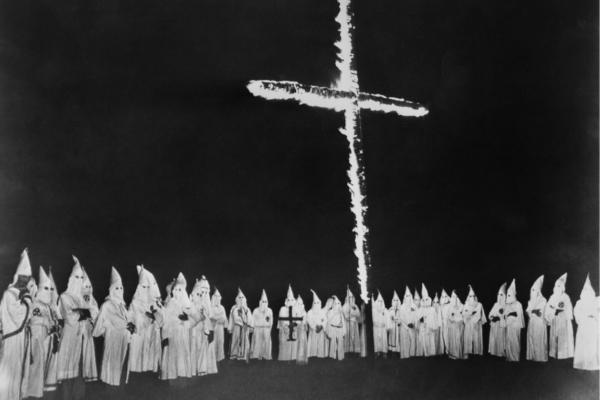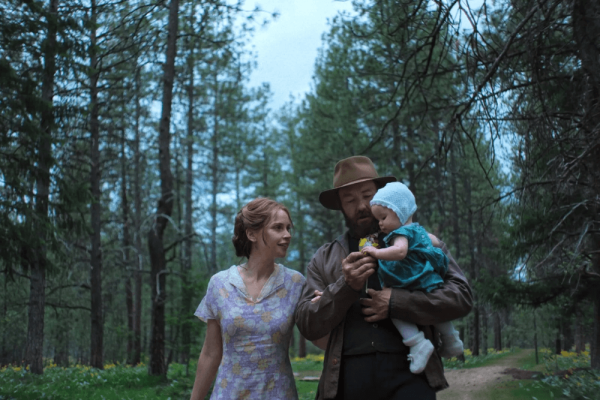I’m in Tennessee on a little mountain getaway, trying to write a book. As soon as I got down here and settled in, I heard about a white supremacist rally planned for this past weekend, at one of the Confederate monuments in Knoxville. Of course, I took a writing break.
Tennessee, the state I grew up in and love so much, ranks fourth for hate groups, with nearly 40 active ones. [In fact, as troubling as it is, five of the states — Alabama, Arkansas, Kentucky, Mississippi and Tennessee — with the most hate groups are in what’s often called “the Bible Belt.” It must break God’s heart that the Bible Belt is the hate belt.] The fine people here quickly organized a response to the KKK gathering – the Knoxville Kindness Rally. It was a beautiful thing to be a part of, several thousand folks strong.
The KKK was pretty much a no-show, and the reporters had those of us who stood against white supremacy outnumbering the folks at the Confederate monument 70-to-1. A news headline said: “Kindness Takes Over.”
In Tennessee, the local news always has a sprinkling of faith in it, being in the heart of the Bible Belt, which gets interesting with the KKK. Over and over in interviews and on websites, many of the white supremacists overtly profess Christianity. But as my family watches, and hears the theology behind the hatred, even its most conservative members grimace. It’s gross theology.
The hatred is bad enough. There’s something even more insidious when religion is used to camouflage hatred. Some of the white supremacists even wear crosses, and carry crosses, and have cross tattoos.
Just as the cross has inspired millions of Christians to stand up for life, to fight for freedom and to come alongside victims of oppression, there have also been times when the cross has been twisted. And a twisted cross becomes a swastika.
A symbol of love can become a weapon. The icon of redemption can become an instrument of terror.
When we miss the central message of God’s love, the sacred cross can get twisted into something profane, even evil. Some of the most horrifying things in history have happened at the hands of Christians with poisonous theology, divorced from grace. It’s what happened with Hitler and the Holocaust. It was the case with slavery and the lynching of black folks in the United States. It’s the story of the Ku Klux Klan. It’s behind the abortion bombers, and the Inquisition, and the Crusades. And it’s bad theology that is being used to justify white supremacy today.
Bad theology is dangerous. Bad theology gets people killed.
As a Christian who worships the loving, forgiving Savior on a cross, I find it particularly troubling when the cross is used as a weapon to justify racism, hatred, and violence — the very stuff I’m convinced Jesus came to heal the world of. And as one who worships a browned-skinned Arab Jew from Palestine who spoke Aramaic and died with love on his lips … I am sickened when I see neo-Nazis try to baptize their bigotry.
After the KKK threatened protestors in Ferguson following the fatal police shooting of Michael Brown, I was in Ferguson, and I went on the KKK’s website. I was disturbed, not just by the overt hatred spewed there, but by the theology that backed it up. They were invoking Christ in their threats — and so I did a little snooping. Not only did their threats in Ferguson invoke God’s blessing, but their entire website was sprinkled with how God blessed their activities. One part in particular caught my attention: Under the heading “Tradition,” I found one of the most disturbing things I’ve ever seen — a theological explanation of why KKK members set the cross on fire in those iconic images of lynchings and hate-filled mobs.
This is the statement from the KKK website:
The lighted cross of The Knights is no different than the average church that has a lighted cross either on top or in front of their church building. The light of the cross symbolizes the Light of Christ dispelling darkness and ignorance. It is the fire of the cross that reminds us of the cleansing “fire” of Christ that cleanses evil from our land. The fiery cross is a symbol that has long been popular with the Christian faith. … We don’t burn the cross, we light the cross. We recognize that Christ is the light of the world. The lighted cross is a symbol of freedom — freedom from sin — freedom from tyranny. When a Klansman or Klanswoman participates in a cross lighting ceremony they are making a public declaration to Jesus Christ of their continued commitment to the Christian faith.
But that’s the KKK. Most bad theology is more subtle than that. White supremacy doesn’t always wear a hood and carry a Confederate flag. Most twisted theology is much sneakier. It creeps in when church choirs stop singing “On Christ the solid rock I stand, all other ground is sinking sand” and begins singing hymns about making America great again, as they did in First Baptist Dallas. It comes out of the closet when white evangelicals like Jerry Falwell call President Trump the “dream president” or as televangelist Paula White put it: “Trump has been raised up by God” for such a time as this. This too, is dangerous theology that’s more distinctively white than it is Christ-like. So we have to keep our sniffers on.
One of my friends says our theology needs to pass “the smell test.” Does it smell like Jesus?
The question ever before us — whether it’s the KKK or a preacher on TV — is this: Does this remind me of Jesus? Does this “gospel” I’m hearing sound like the Gospel of Jesus — where the last are first, the first are last … the mighty are cast down and the lowly are lifted up … where the hungry are filled and the rich are sent away empty … where the poor are blessed, the oppressed are set free, and the peacemakers are the children of God. If the message is not Good News to the poor then it is not the Gospel of Jesus.
If it doesn’t smell like Jesus … we need to toss it out like sour milk.
Now back to writing that book.
Got something to say about what you're reading? We value your feedback!







